
Results from the open-label extension of a phase 3 trial showed that treatment with ravulizumab sustained clinical benefits for up to 4 years in patients with generalized myasthenia gravis.

Isabella Ciccone, Content Associate, NeurologyLive®, has been with the team since September 2022. Follow her on X @iciccone7 or email her at [email protected]

Results from the open-label extension of a phase 3 trial showed that treatment with ravulizumab sustained clinical benefits for up to 4 years in patients with generalized myasthenia gravis.
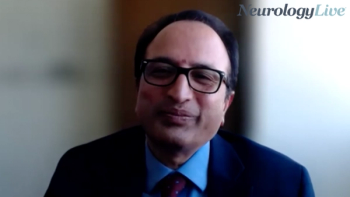
The division chief of neurology at Nemours Children’s Hospital spoke on the need for timely referrals to epilepsy centers for patients with drug-resistant epilepsy. [WATCH TIME: 5 minutes]
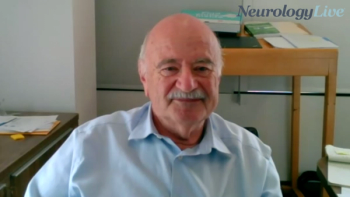
The chief of ophthalmology at the Doheny Eye Institute discussed decades of research uncovering how Alzheimer can impact visual function and how retinal imaging may advance diagnosis. [WATCH TIME: 13 minutes]

Data suggest no significant differences in comorbidity rates in a newly published study, highlighting dosing challenges and treatment patterns in patients receiving immediate-release sodium oxybate.
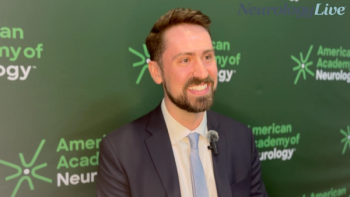
The resident in the Department of Neurology at NYU Langone Health discussed the preliminary findings of a 9-month study on lecanemab recently presented at the 2025 AAN Annual Meeting. [WATCH TIME: 2 minutes]

In a randomized cross-over trial, 4 of 5 commonly used drugs for idiopathic intracranial hypertension reduced intracranial pressure; however, also exacerbated cognitive issues.

The executive vice president of research at the National MS Society talked about how the award continues to honor transformative multiple sclerosis research and inspire the next generation of investigators. [WATCH TIME: 5 minutes]
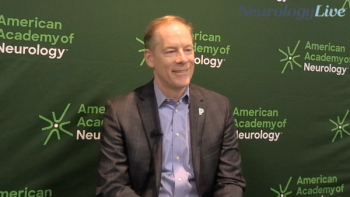
The chief scientific officer of the Parkinson’s Foundation discussed the foundation’s efforts to integrate whole genome sequencing into PD GENEration and expand access across diverse global populations. [WATCH TIME: 4 minutes]

A recently published phase 1 study revealed that coadministration of intranasal zavegepant with an oral contraceptive did not lead to clinically significant changes in drug exposure.

Although the study reported no evidence linking human leukocyte antigen alleles to migraine, the findings were not replicated, suggesting the HLA system may not be involved in migraine susceptibility.

A duo of neurology experts from Feinberg School of Medicine talked about the diagnostic challenges, evolving understanding, and clinical implications of paraneoplastic neurological syndromes. [WATCH TIME: 3 minutes]

The director of NYU Langone's Multiple Sclerosis Comprehensive Care Center discussed the importance of early, high-efficacy treatment for pediatric MS. [WATCH TIME: 3 minutes]

In late-breaking findings from the TRANQUIL study presented at AAN 2025, the wearable demonstrated significant improvements in tremor reduction and daily functioning over a sham device.
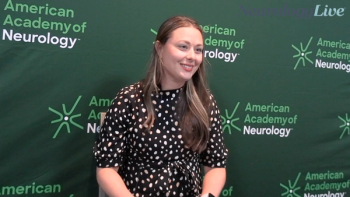
The senior director of mission programs at The ALS Association discussed how the thinkALS Toolkit can aid general neurologists in identifying and referring suspected cases more efficiently. [WATCH TIME: 5 minutes]

The physician assistant at UCSF Movement Disorder and Neuromodulation Center reflected on the value of AMDAPP in fostering professional connection, education, and patient-centered care among movement disorder APPs. [WATCH TIME: 3 minutes]

Experts discussed recent advancements in diagnostic criteria, imaging techniques, and the evolving understanding of multiple sclerosis subtypes and treatment responses. [WATCH TIME: 10 minutes]
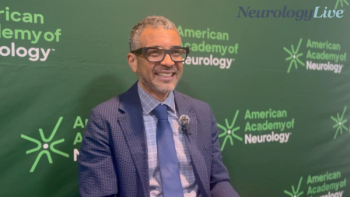
The professor of neurology at the University of Pennsylvania Perelman School of Medicine discussed the current research landscape, clinical challenges, and future directions for noninvasive neuromodulation techniques in neurorehabilitation. [WATCH TIME: 4 minutes]

Catch up on any of the neurology news headlines you may have missed over the course of March 2025, compiled all into one place by the NeurologyLive® team.
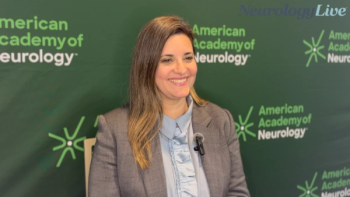
The clinical associate professor of neurology and neurosurgery at NYU Langone Health emphasized the importance of rapid, targeted blood pressure reduction and bundled care to improve outcomes in patients with intracerebral hemorrhage. [WATCH TIME: 4 minutes]
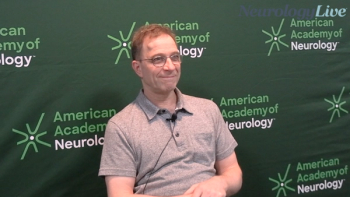
The Melissa and Paul Anderson President’s Distinguished Professor of Neurology, Perelman School of Medicine, University of Pennsylvania discussed evolving insights into the cellular immunology of multiple sclerosis. [WATCH TIME: 4 minutes]

The clinical professor of stroke neurology at Stanford University discussed the clinical rationale and evidence supporting early, intensive blood pressure lowering in patients with intracerebral hemorrhage.

A phase 3 trial investigating latozinemab, a monoclonal antibody therapy for frontotemporal dementia because of GRN mutations, reported baseline participant characteristics to better characterize this patient population.

Newly presented open-label extension results at AAN 2025 suggest that investigational ZYN002, a cannabidiol gel, may help improve irritability in children and adolescents living with Fragile X syndrome.
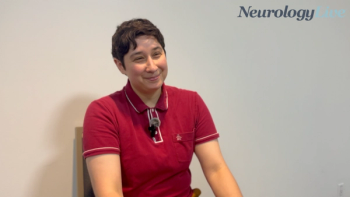
The staff scientist at Gladstone Institutes talked about leveraging AI-driven behavioral analysis to better model and assess Alzheimer disease progression in preclinical studies. [WATCH TIME: 2 minutes]

Findings from a phase 3 study revealed that patients with Parkinson disease switching to IPX203 had greater benefits in good ON time when also taking lower doses of dopamine agonists.
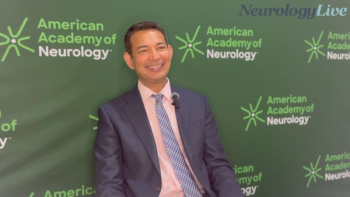
The professor of neuroscience at the Imperial College London discussed the emerging role of GLP-1 analogs as neuroprotective agents with potential benefits in neurodegenerative conditions. [WATCH TIME: 4 minutes]

The director of the UCLA Goldberg Migraine Program discussed the advantages, evidence base, and evolving payor support for CGRP-targeting therapies as potentially a first-line option in migraine prevention. [WATCH TIME: 5 minutes]

The clinical professor of stroke neurology and neurocritical care at Stanford University advocated for early and intensive blood pressure reduction in patients with intracerebral hemorrhage to limit hematoma expansion and improve outcomes. [WATCH TIME: 5 minutes]

Findings showed that atogepant 60 mg once daily demonstrated significant improvements in functional outcomes for patients with episodic migraine, compared with placebo, over 12 weeks.

A recent post hoc analysis of the REST-ON trial reported that once-nightly sodium oxybate did not worsen the apnea-hypopnea index in individuals with narcolepsy with no or mild sleep apnea.